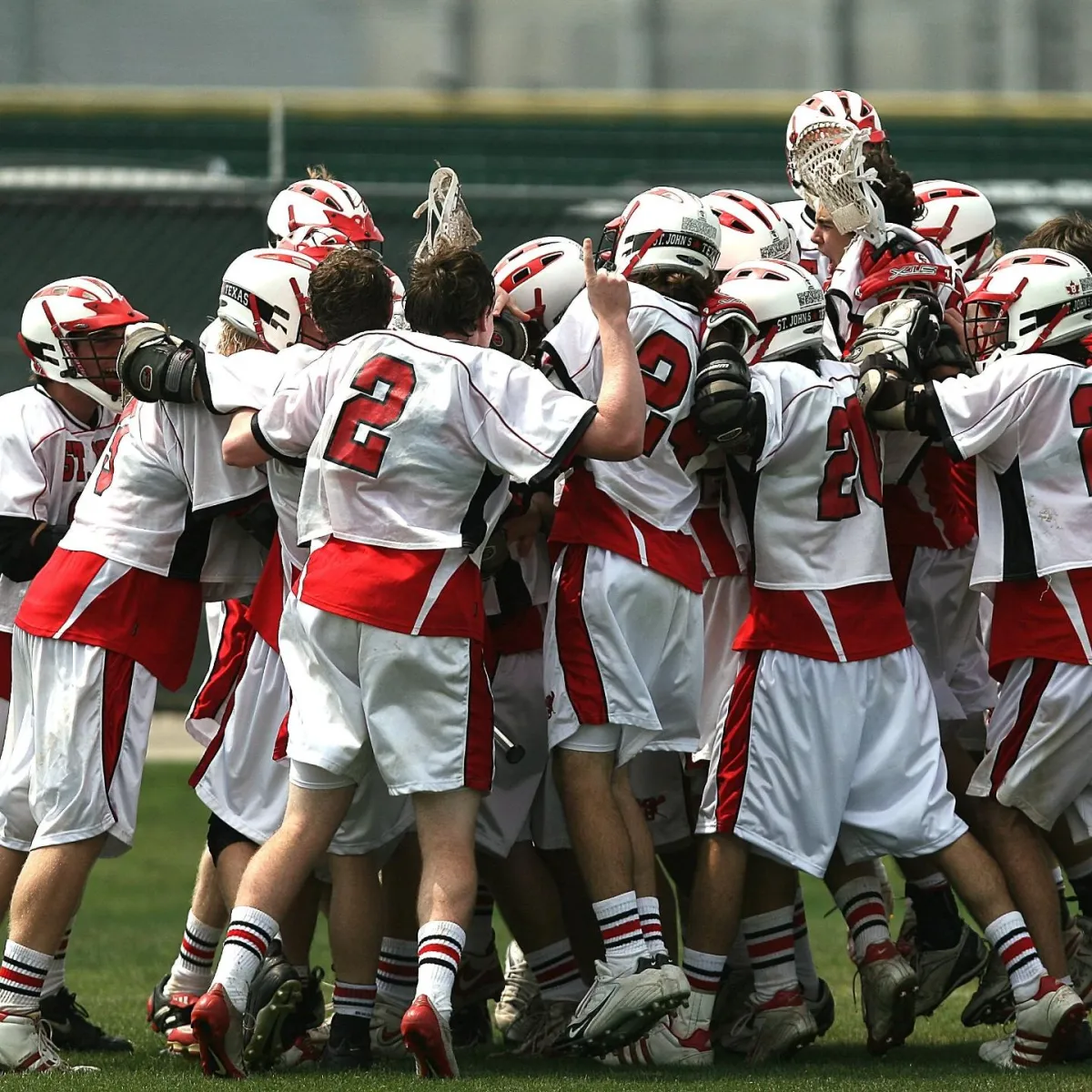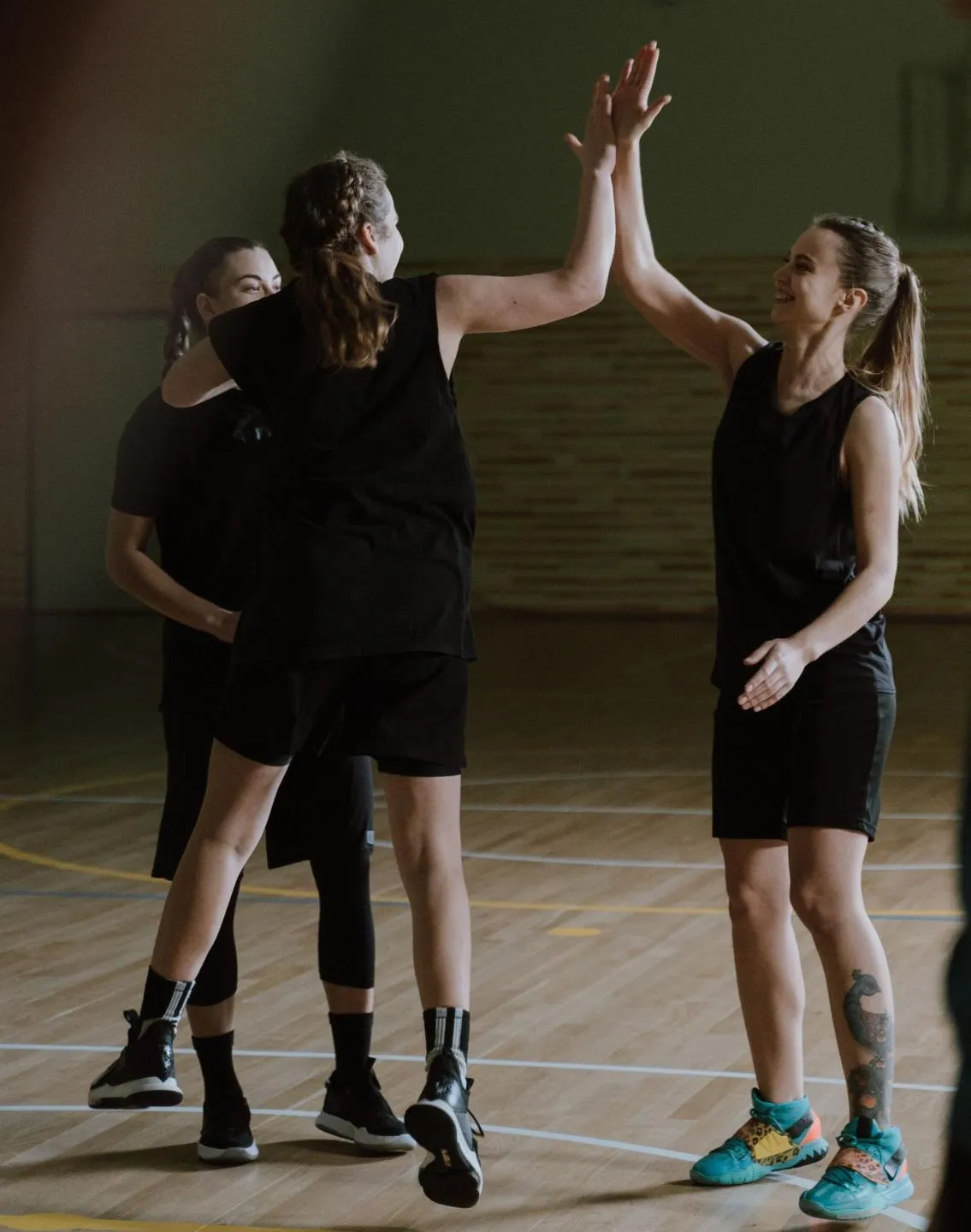Getting Right to the Point
I went to grad school to become a therapist and mental health provider.
I was a coach and athlete too. I became the expert I wish I had starting out in sports. To this day, I'm working to create the resources I never had so that no young athlete has to be pushed out and feel helpless to change.
I am not just doing this for me - I'm doing for it my nieces, nephews, and my son and his friends. We cannot accept that we can't do better in sports.
Letting the mental toughness myths dominate is unacceptable.
That would be cheating ourselves and our athletes.

TOPICS COVERED
Helping Athletes Starts with You - Don't Cheat the Athlete
Do you have athletes and their families show up in your practice?
We all do. They show up and need our help. They don’t know where to go or what they need. They may not even know that their struggles and solutions are related to the challenges they face in sport.
Many times therapists often struggle to…
Understand the language their speaking
Find a direction when working with them? Or have the direction shift on you?
Adapt your style or skills or approach to their needs?
Get the information you need to help them?
Know how to understand their performance anxiety or perfectionism?
Help them navigate the politics, stressors, and conflicts with the people around them?
Understand the pressures of the sports systems they compete in?
These struggles make it hard to build relationships and be effective. They get frustrated, think there is something wrong with them and they will never figure out how to handle the challenges that go with playing the games they love. You can’t be Stuart Smalley cause they will dismiss you like Michael Jordan did and believe that therapy is for the weak and will never work for them.
Don't Cheat the Athlete: A Program for Therapists is a one-day, intensive training that will give you the tools to bridge the gap between therapy and sport. This isn’t just about talking—it’s about equipping you with practical strategies to help athletes navigate anxiety, depression, ADHD, OCD, trauma, performance struggles, and the unspoken pressures of their world.
We have integrated our 25 years of experience in both mental health and sports to blend evidence based approaches to mental health, positive psychology and sport psychology. You will learn a system that you can use yourself complete with handouts and exercises you can use in your practice tomorrow.
Joe Ehrmann, Author of Inside Out Coaching calls youth sports the most powerful religion in America. No matter the age or level , an athlete’s world is filled with mental toughness myths and traps that work temporarily. It feels like the world convicts them of not being good enough because they struggle with pressure, strong emotions, and fear.
It would be easy to tell them to quit, declare participation in it as crazy.. That doesn't help and may even do damage. It’s hard to know what to do when they show up. Many therapeutic approaches fail to account for the unique demands an athlete and their family face.
What You’ll Learn:
✅ How to create systems to manage the challenges so you get fired cause they don’t need you
✅How to help parents manage the stressors and manage their stuff around sports
✅ A new way to understand and explain mental health challenges in athletes
✅ How to teach them to respond vs react in high-pressure moments
✅ The impact of sport systems, coaching styles, and family dynamics on athlete mental health and mental performance
✅ How to integrate mental fitness training, including HRV, mindfulness, and visualization
✅ A framework for teaching athletes how to “get out of their heads” and perform under pressure
✅ Key interventions for handling performance anxiety, trauma, and conflicts
✅How to use concepts from Acceptance and Commitment Therapy, CBT, EMDR, Mindfulness,Narrative and Solution Focused Therapies. This training will challenge you, deepen your impact, and most importantly—help you support and transform the athletes who need you most
Date & Time: Friday, May 16 from 8:30am - 4:30pm
Location: Plymouth Community Center
For: Therapists, psychologists, counselors, and mental health professionals who work with (or want to work with) athletes
Don’t let athletes slip through the cracks because their struggles weren’t understood. Don’t Cheat the Athlete. Join us and transform the way you support them.
SESSION 1: DEFINING THE BRAIN PROBLEM
SESSION 1: DEFINING THE BRAIN PROBLEM - challenges all athletes face
Simplifying and teaching athletes the brain problem as the basic underlying concern of common athlete presentation of depression, anxiety, ADHD, OCD, and PTSD
Respond vs React - how the culture of sports and mental toughness myths create and maintain the brain problem
Understanding coaching approaches, youth sport systems, and beyond
Explaining depression, anxiety, ADHD, OCD, and PTSD in athletes
The family system - despite versus support: identifying the impact of parental approach and impact it has on performance
Who vs What - athlete identity and the Respect and Performance Ladder
Am I needy - Identifying and communicating needs with parents, coaches, and teammates
I’ve fallen and I can’t get up - injury recovery and the grief loop
Practicing smart habits - balancing rest and recovery vs hard work and the Mini Donut Rule
SESSION 2: UNDERSTANDING THE BRAIN PROBLEM AND ITS IMPACTS
SESSION 2: UNDERSTANDING THE BRAIN PROBLEM AND ITS IMPACTS
The slide - understanding cognitive fusion and its impact
It’s 100% mental - the psychophysiology and its contribution to the brain problems
Developing mental fitness - changing the frame and the conversation
Accepting the brain problem, challenging emotions, struggles, and the courage to ask for help
Measuring and defining mental fitness
Building a mentally fit competition system
Building a mentally fit change system
Integrating 15-30 minutes of daily mental fitness
Heart rate variability training, meditation, visualization, and competition grids
Expected outcomes
Learning how to play through challenging and difficult emotions
Developing a Just Play Zone
Commitment to challenges and growth
Characteristics athletes will develop
Self awareness; emotional flexibility; problem-solving orientation
ADJUSTMENTS TO THE COMPETITION SYSTEM
You will learn how to teach adjustments athletes need to make to their existing systems that will lead them to success in sports and life. Athletes are often told to “get out of your head” but never told how to do this.
System 1 - The Competition System. - Educating athletes about flow (Just Play Zone or Optimal Performance Zone) and the continuum of intensity. We teach athletes how to get, stay, and return to the Just Play Zone. This system is designed to give athletes the tools and skills they need to perform through the inevitable. Strong emotions - anxiety, pressure and frustration that show up when you are trying to Just Play in the moment.
Ring Ring: The bell curve
Reboot your Brain Skills
Using Heart Rate Variability Training to teach coherence and the Just Play Zone
SESSION 3: THE CHANGE SYSTEM
SESSIONS 3: THE CHANGE SYSTEM
System 2 - The Change System - This system helps athletes identify things they need to adjust. And we aren’t talking pennies, dimes, nickels and quarters.
Identify performance-interfering thoughts (PITS)
Build Mental Models
Understand Psychophysiology
Heart Rate Variability Training - teaches athletes to respond rather than react
Learn clinical skills and interventions important for successfully working with athletes.
Developing performance language and partnering with athletes
Deep dive mental fitness vs mental toughness
Externalizing the brain problems
Cultivate belief and commitment with solution focused approaches to get results
Miracles start with mindsets - The 5 Star Mindset
The challenge process
Create a buzz - Bee you
The self-forgiveness process - Learning to let go
Learning from failure - Developing a process
Being comfortable with the uncomfortable
Goal setting with athletes - process vs outcome goals - a simple framework
SESSION 4: HURTS SO GOOD
SESSIONS 4: HURTS SO GOOD
Understanding and identifying hidden traumas in athletes
Abuse of power
Injuries and PTSD
Pressure, anxiety, and OCD
Interpersonal trauma - difficult coaches, teammates, parents and systems
Outline of EMDR with athletes
Learn the Parnel 8 stage EMDR protocol adapted for athletes
Clinical stories of athletes that used EMDR to create mental fitness

Don't Cheat the Athlete
Event
Plymouth Community Center
Friday, May 16, 2025
8am - 4:30pm
$180
Approved for 6 CE Hours!
8-hour In Person Training
Assessment Quiz
Certificate of Completion
Meet Your Instructor
With over 20 years of experience, Hans Skulstad, MA LMFT, combines his passion for sports and mental health to help athletes raise their game, play at the next level and many times win championships that all athletes play for.
Co-founder of the acclaimed "Foundations Counseling" and "The Center for Sports and the Mind," Hans helps athletes overcome mental blocks to perform their best and find satisfaction in their careers.
Well-versed in many sports, he's provided thousands of clients the roadmap to success and healthy mindsets.

FEATUTED IN:

© 2023 Center for Sports and the Mind. ALL RIGHTS RESERVED.
